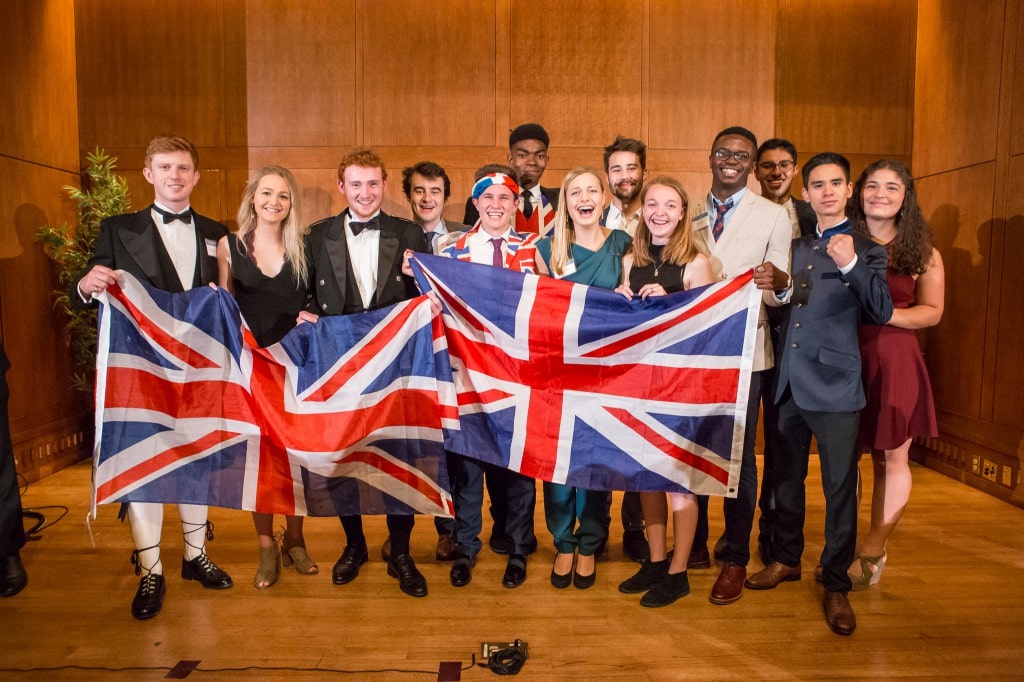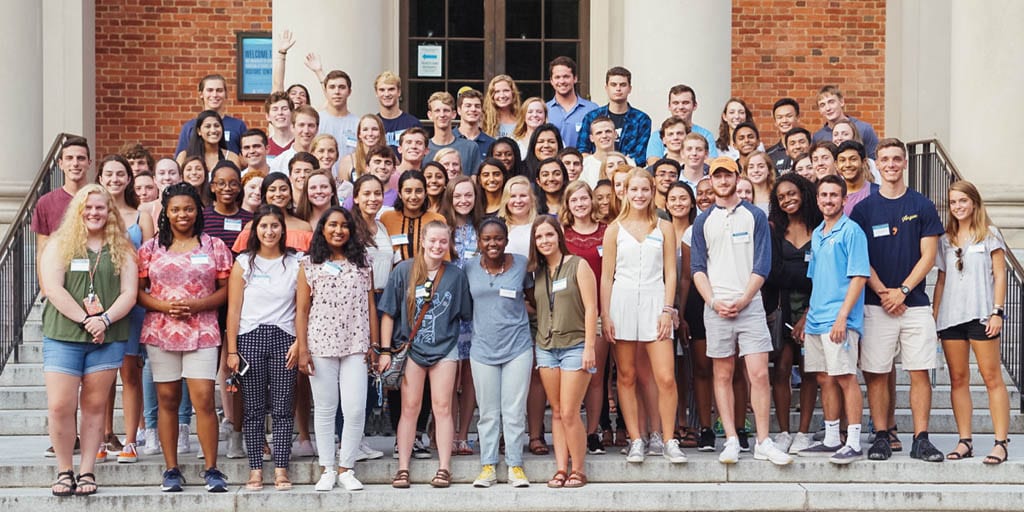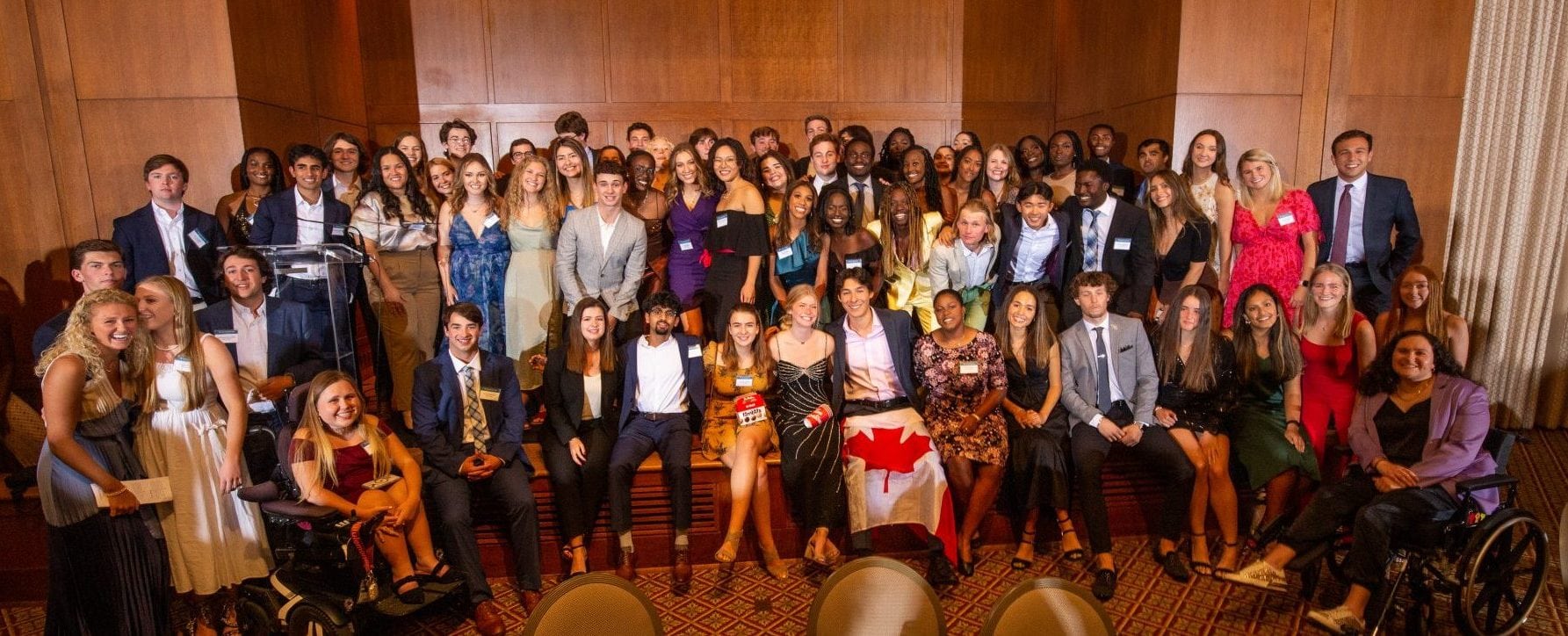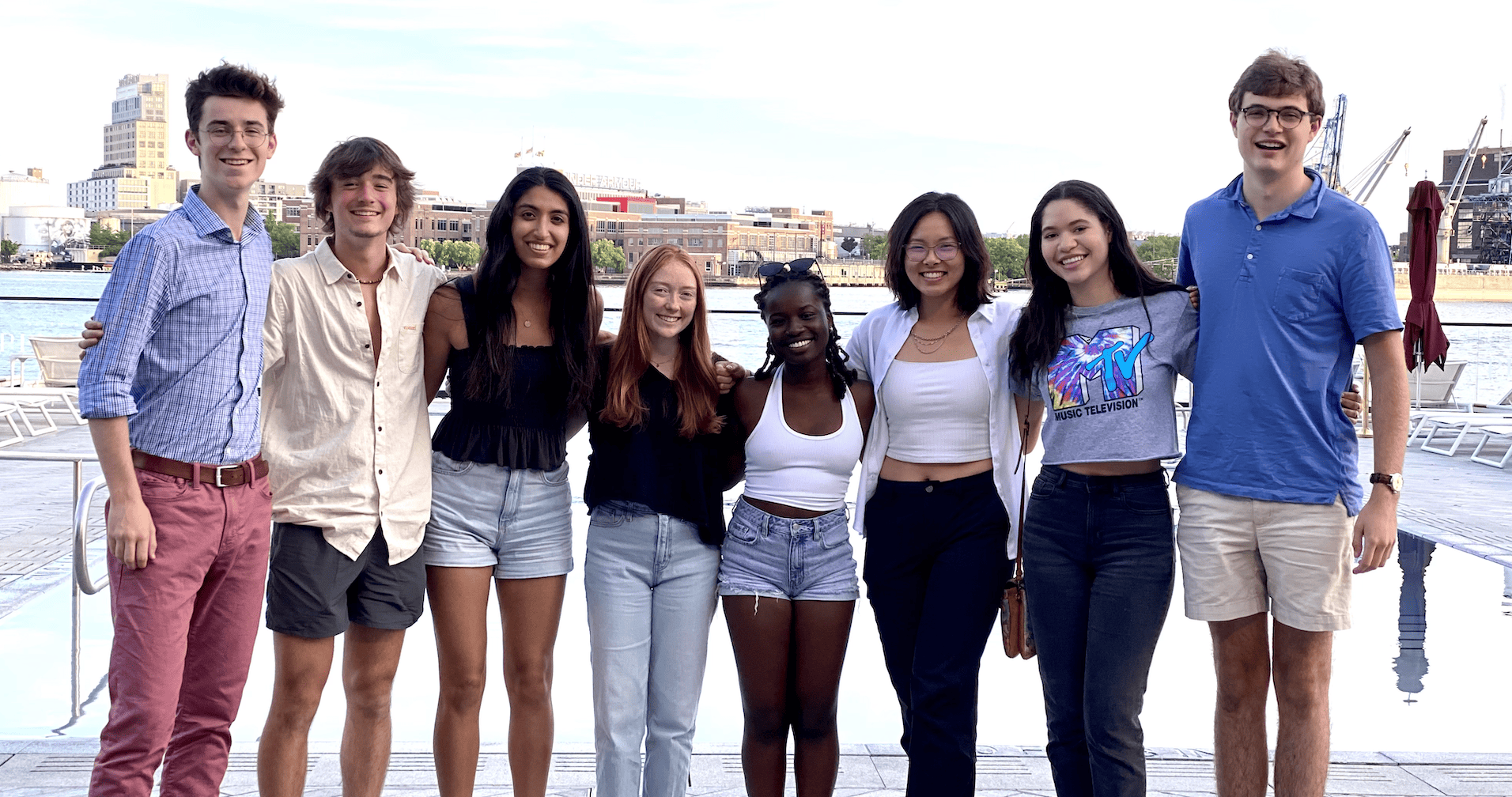
British scholars at Fall Banquet
Featuring Anamay Viswanathan ’19
As a final bit of encouragement to help you wrap up those essays and get your application submitted on time, here are a few excerpts from an interview with one of our senior scholars from the U.K.
. . . On choosing a university his friends and family never expected:
Coming from the U.K., accepting the scholarship was kind of a leap of faith. At the time, I wasn’t sure whether I was ready to make that leap. It was more than just choosing a place where I was coming to study for four years. It was a life decision. People in my life had certain expectations about where I would go, and I knew I was kind of blowing that out of the water. Few people from my hometown knew about the Morehead-Cain; very few of them knew about UNC. There were a lot of other options on the table for me. My family would be far away. So all that made me err on the side of caution.
What made me ultimately take the leap was—I sort of have this mantra that being afraid of something is never a good excuse not to do it. I knew that I was afraid, but I knew that it was in that sort of element of fear that I would really discover who I was. I know that sounds corny, but I hadn’t felt like that in a really long time and I knew I need to give myself that—take that leap of faith and believe in myself.
. . . On the liberal arts experience at a large research university:
My biggest concern academically was the liberal arts. In the U.K. you pick your course as an 18-year-old, and that’s the one course you study for three years. I was daunted by the prospect of studying a dozen subjects and jumping around from place to place.
Looking back on it, I’d actually say that liberal arts was huge for me in terms of clarifying my interests. I started off wanting to do politics and economics, and now I’m doing neuroscience. I never thought I would study STEM in college. But it happened because I was given the chance to jump around.
I’ve also valued the undergraduate research at Carolina. You don’t see that in many other universities. You don’t see that abroad, especially in the U.K. Being able to graduate with a co-authored paper or working on really, really interesting research just puts you in a great position no matter what you want to do.
. . . On the Morehead-Cain travel opportunities:
In general, I feel like the world is my oyster. Comparing what my options would have been like had I stayed home in the U.K., I don’t think I would have thought as globally as I am now.
Going to Cambodia for my public service summer was huge, and the faith that the Foundation had placed in me to do that. I was doing human rights work out there. It was completely new to me. I had never traveled that far by myself, in a completely new environment with completely new people. To see the way that the advising team backed me and said, “You know what? We actually think that you are capable of doing that.” I still remember that moment.
. . . On graduating debt-free:
Graduating debt-free has given me the chance to really think about what I want to focus on, what my values are, and not have to worry about, “Oh, can I afford to do this?” Or, “Where is this going to lead me in two or three years’ time?” Having that cushion means that I can take a few more risks that I would not have otherwise. That’s an incredible honor and privilege to have.
What’s funny about the whole thing is I feel that the four years has set me up for that, to not only understand the gravity of that privilege, but also to be able to make the most of it and give back in a way that makes it as valuable as it can be.


